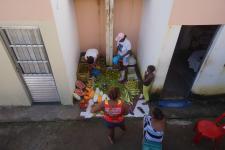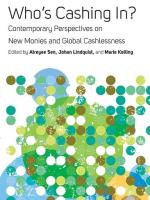Debt and Dirty Names

In this book chapter, DIIS researcher Marie Kolling tells us the story about Ana: A woman and fruitseller from Salvador who struggles with paying both her credit card debt and returning the cash she owes to various friends and businesses in her local community. This is in part because the customers who buys fruit from Ana often fail to repay what they bought from her on credit.
That is how Ana got a "dirty name", as it is called in Brazil when people are registered as bad payers. A "dirty name" reduces people’s access to credit, which many people - like Ana - have come to depend on as they struggle to make ends meet.
Access to digital loans enabled the urban poor Brazilians to dream bigger consumption dreams. However, dreams and debt are two sides of the same coin for most people on the margins of the city and the formal economy. For them, the double burden of debt increases financial instability, social vulnerability and urban marginality.
The chapter Debt and Dirty Names is a part of the publication Who is Cashing In? Contemporary Perspectives on New Monies and Global Cashlessness. The new anthology is co-edited by DIIS researcher Marie Kolling together with Atreyee Sen, University of Copenhagen, and Johan Lindquist, Stockholm University.
The book chapter has been made free to read and download with support from the Independent Research Fund Denmark and the Joint Committee for Nordic research councils in the Humanities and Social Sciences.
DIIS Eksperter


